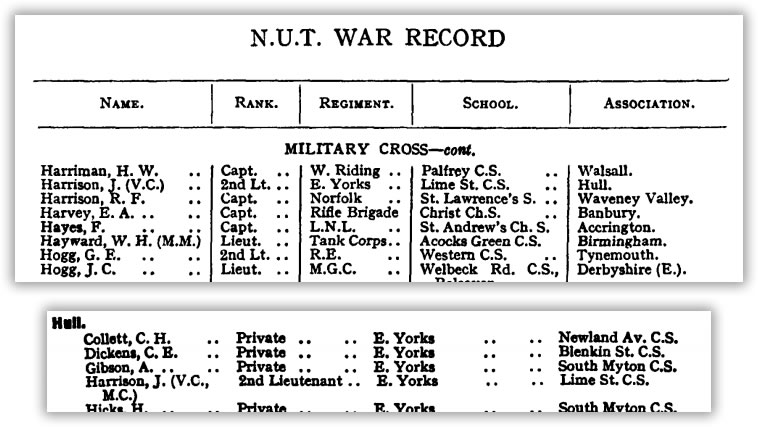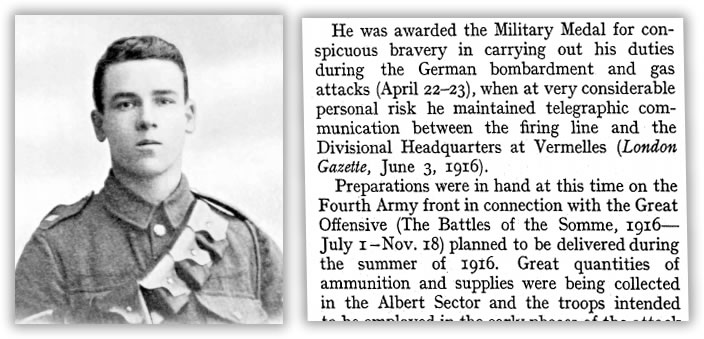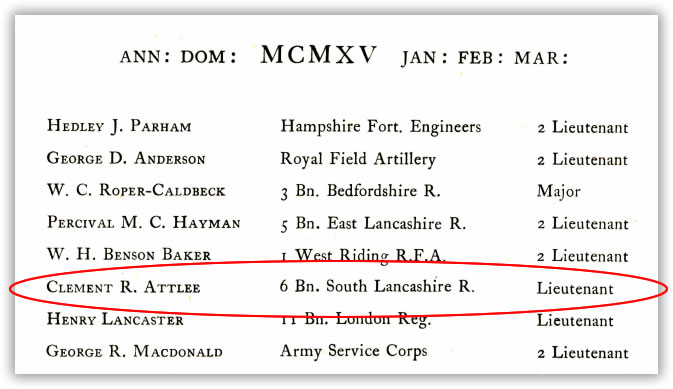
Discover Your Ancestors
Two critically acclaimed publications are available to family history researchers - the annual print magazine, Discover Your Ancestors, and the monthly online magazine, Discover Your Ancestors Periodical. Click here to subscribe.Trades in the trenches
People from all walks of life served in WW1 – and often their professional bodies left records
World War One involved so many people it is highly likely most of us will have an ancestor who volunteered or who was called up to 'do their bit'. Many family historians go straight for the usually military record when searching for war service details, but there are other great sources of information that can provide you with details of what your ancestors did in the war.
Many skilled professionals were a part of membership organisations, professional bodies and unions. These organisations all kept records of their members. As World War One had such a high casualty rate and young professionals were often at the forefront of the struggle, the membership records have become a lasting tribute to these brave men.
In this article we look at three examples of professional organisations that provide us with military and roll of honour information – all of the records discussed are available in the extensive war records collections online at www.TheGenealogist.co.uk
Teachers
The National Union of Teachers' War Records covered all NUT members who served in the war, and also discussed issues of the time, such as pensions, salary levels of teachers who joined the army and fund raising for relief in Europe including refugees in Belgium and other areas decimated by the war. The NUT was also concerned for the welfare of teachers from other countries affected by the war.
The NUT had a number of courageous medal recipients amongst its members. Listed here is 2nd Lieutenant Jack Harrison of the East Yorkshire Regiment. He was killed in May 1917 in Oppy Wood, France, aged 27. After having earlier won the Military Cross for bravery, he was posthumously awarded a Victoria Cross for single-handedly attacking a German machine gun post to protect his platoon. His body was never found.
He taught at Lime Street Council School in Hull and also played rugby league for Hull FC as a prolific try scorer. He is listed among the 'Gallant War Dead' in the records along with the name of his school. The NUT also listed a number of Military Cross medal recipients in its War Records, including Jack Harrison.

Teacher Jack Harrison is listed among the 'Gallant War Dead' and as a recipient of the Military Cross medal, in both cases as part of the National Union of Teachers' World War One records available at www.TheGenealogist.co.uk.
Electrical Engineers
The Institute of Electrical Engineers (IEE) was founded in 1871 and became the professional organisation for all electrical engineers. Pioneering developments in electrical engineering, its members were at the forefront of technical advancements in the early 1900s and included many talented engineers.
The IEE war records are a tribute to members who died in the war. A number of promising engineers lost their lives and the records give an in-depth biography into the background, education, engineering career and war service, including details on how they died. Many of the records come with a picture of the member commemorated as in the case of this 'student' member featured opposite.
Second Corporal Charles Burrage, who had been awarded the 1st Class Diploma for best 3rd year student in Electrical Engineering at Battersea Polytechnic, gave up his job to join the Royal Engineers and was posted to France in 1915. During the Battle of Loos he won the Military Medal for bravery in maintaining telegraphic communication between the front and headquarters. He was killed shortly after in an attack on German positions.
The Institute of Electrical Engineers war records provide a great deal of information on their members who lost their lives in the war. As many such as Charles Burrage served with such distinction, it is a fitting tribute.
We can find numerous results for Charles Burrage at TheGenealogist as he is mentioned in their war records multiple times. Below we see excerpts of the biography of Charles Burrage. Spread over a number of pages, we find a full record of his life, his education, early career and a full account of his war experiences. His bravery to earn his military medal is also noted.
Many educated professionals were chosen for their intelligence and leadership skills to become junior officers and NCOs. Casualty rates were high as these young officers, sergeants and corporals, were often at the forefront of the attack.

Electrical engineer Charles Burrage – the IEE's records include an extensive biography of his career and military service.
Lawyers
The Honourable Society of the Inner Temple is one of the four London based Inns of Court for the law professions and has been a separate legal society since 1388. Offering accommodation to practitioners of the law and their students with facilities for education and dining, the organisation proudly produced commemorative records of their members between 1914 to 1918. The information includes their regiment, rank and if they were injured, killed or missing in action.
The Inner Temple list includes the record of future prime minister Clement Attlee, who was called to the Bar at the Inner Temple in 1906. He served as a lieutenant in the South Lancashire Regiment and was the penultimate man to be evacuated from Gallipoli. He was later seriously wounded in Mesopotamia before serving in France, and he survived the war.
Clement Attlee's war service helped shape him into a distinguished prime minister who presided over a radical, reforming government. In many circles, he is regarded as one of Britain's greatest prime ministers. From the Inner Temple records now on TheGenealogist, we find details of Clement Attlee's war service record.
If your ancestors worked in a professional occupation, it's well worth checking the records of the membership body for that profession to discover what historical records may be stored on your ancestor. Many organisations kept meticulous records of their members, including their war service. The Institute of Electrical Engineers made the records of their war dead a major project just after the war as a 'worthy memorial'.

Clement Attlee's record from the Inner Temple records at The Genealogist.co.uk
The final word is left to the National Union of Teachers, who finished their War Records tribute with a poem that captured the experiences of those many teachers who served their country overseas in World War One:
Into the mystery, not of death only,
Into strange life they went, learners anew;
School, home, and love they left, into a labyrinth,
Vanishing perilous, dead to our view.
Dark over Flanders, death waited their coming,
Mirk lay the North Sea, pulsing with death;
Even the Orient darkly received them:
We darkly watching, holding our breath.